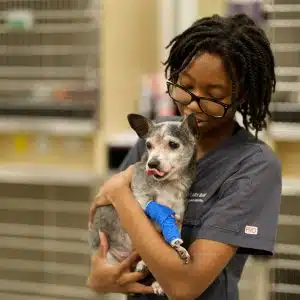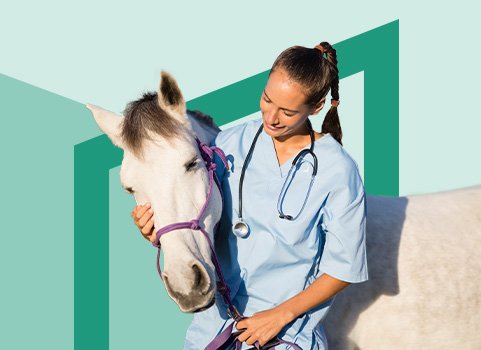Veterinary Cancer Specialist answers common pet cancer questions
Wiki Article
How a Veterinary Oncologist Can Assist Improve Your Family pet's High quality of Life
Veterinary oncologists focus on the medical diagnosis and therapy of cancer cells in pet dogs, playing an essential function in improving their high quality of life. They develop tailored treatment strategies that resolve the distinct requirements of each pet. Through innovative diagnostics and targeted therapies, these specialists aim to manage signs and symptoms successfully. The trip does not finish there. Discovering the full spectrum of care options exposes more regarding exactly how these experts can make a considerable distinction.
Recognizing the Role of a Veterinary Oncologist

In enhancement to diagnosis, vet oncologists create complete therapy approaches tailored to the needs of each family pet. These approaches may include radiation treatment, radiation therapy, and surgical interventions, focused on not only extending survival but also improving the general high quality of life. In addition, they offer palliative care, concentrating on pain monitoring and convenience for pets dealing with incurable medical diagnoses. By teaming up with animal proprietors, veterinary oncologists assure that pets receive one of the most reliable and compassionate treatment feasible throughout their cancer cells journey.
Tailored Treatment Prepare For Your Pet
When a pet dog is identified with cancer cells, developing a tailored treatment strategy becomes important for resolving their unique demands and circumstances. A vet oncologist very carefully evaluates the kind of cancer, its phase, and the overall health of the pet dog. This thorough assessment enables the development of a personalized approach that might consist of a mix of radiation treatment, surgical treatment, and radiation therapy.The oncologist also takes into consideration the animal proprietor's choices and way of life, guaranteeing that the plan straightens with their goals for their pet dog's treatment. Board Certified Veterinary Oncologist. Therapy plans are not static; they are routinely reviewed and adjusted based upon the pet dog's response and any arising requirements. By concentrating on customized treatment, vet oncologists intend to boost the effectiveness of therapies while maintaining the pet dog's quality of life. This individualized technique promotes a much better understanding of the illness, encouraging pet dog owners to make educated decisions about their cherished friends' health
Handling Signs And Symptoms and Negative Effects
Taking care of the signs and negative effects of cancer treatment is an essential component of veterinary oncology. Vet oncologists make use of a selection of methods to ease pain and enhance the total health of pets going through therapy. This might consist of the use of anti-nausea medicines to deal with throwing up and anorexia nervosa, which prevail side impacts of chemotherapy. Discomfort management is likewise focused on, typically entailing the prescription of anesthetics customized to the pet dog's certain requirements.Furthermore, oncologists might recommend nutritional changes, including top notch, easily digestible foods to support nutritional intake. Keeping track of blood work is crucial to detect any type of unfavorable responses to therapy early, enabling timely interventions. Regular follow-ups make it possible for the veterinary team to examine the family pet's feedback to therapy and make necessary changes. Via these detailed methods, veterinary oncologists aim to enhance the quality of life for pets encountering cancer cells treatment difficulties.
Palliative Care and Comfort Actions
Palliative treatment plays an important duty in boosting the high quality of life for additional reading animals identified with cancer, focusing on convenience and emotional support instead than curative treatment. Vet oncologists focus on discomfort monitoring, ensuring that pet dogs experience minimal pain during their health problem. This includes making use of analgesics, anti-nausea drugs, and various other therapies tailored to specific demands.Along with medicinal treatments, environmental modifications can considerably enhance an animal's lifestyle. Producing a calm, comfy space with soft bed linen and simple accessibility to food and water can reduce stress. Nutritional support is likewise crucial; oncologists might recommend specialized diet plans that deal with the pet's choices and needs.
Emotional assistance for both the family pet and its proprietors is vital. Vet Recommended Reading oncologists provide advice on coping techniques, assisting family members browse the emotional obstacles that accompany a cancer diagnosis. Inevitably, palliative treatment aims to guarantee that pets get the self-respect and convenience they should have.
Collaborating With Your Regular Veterinarian
Cooperation with a normal veterinarian is crucial for enhancing the care of pet dogs with cancer cells, as this collaboration assures a complete approach to therapy and high quality of life. The normal veterinarian typically has a thorough understanding of the animal's case history, which is important when formulating a treatment strategy. They can properly communicate with the veterinary oncologist, guaranteeing that all elements of the animal's health and wellness are taken into consideration.This cooperation enables collaborated treatment, which may consist of routine check-ups, keeping an eye on negative effects, and adjusting drugs as required. Normal veterinarians can likewise provide emotional assistance to family pet owners, aiding them navigate the intricacies of cancer cells treatment - Board Certified Veterinary Oncologist. By functioning carefully with veterinary oncologists, they can assist in a seamless change in between various kinds of treatment, making sure that pets obtain the most efficient treatments while maintaining their convenience and well-being throughout the process. Together, they improve the general top quality of life for family pets dealing with cancer
Regularly Asked Concerns

What Kinds of Cancers Cells Do Vet Oncologists Usually Treat in Pet Dogs?
Vet oncologists commonly treat various cancers in pets, including lymphoma, pole cell tumors, osteosarcoma, and soft tissue sarcomas. These experts employ sophisticated diagnostic strategies and treatment options to deal with the certain demands of each animal.Just How Can I Prepare My Pet for a Veterinary Oncology Consultation?
Preparing a pet for a vet oncology appointment involves celebration medical documents, noting signs, and preparing inquiries. Guaranteeing the pet dog is tranquil and comfy throughout travel can additionally substantially improve the total experience and assessment continue reading this efficiency.Exist Any Type Of Alternative Treatments for Animals With Cancer cells?
Different therapies for pets with cancer usually consist of acupuncture, natural medicine, and nutritional assistance. These methods may enhance traditional treatments, possibly improving general health and offering helpful care during the animal's cancer trip.Exactly how Often Should My Animal See the Veterinary Oncologist?
The regularity of sees to a veterinary oncologist typically depends on the family pet's particular problem and treatment strategy. Normal analyses might be recommended every couple of weeks or months to keep an eye on progress and adjust treatments as necessary.What Costs Are Connected With Veterinary Oncology Solutions?
Costs related to veterinary oncology services can differ commonly, including first assessments, diagnostic tests, treatment plans, and continuous care. Veterinary Cancer Specialist. Pet dog owners ought to get ready for prospective costs that show the complexity and duration of the treatment neededVeterinary oncologists specialize in the diagnosis and therapy of cancer cells in family pets, playing an essential duty in improving their high quality of life. Lots of family pet proprietors might not be acquainted with the ins and outs of veterinary oncology, comprehending the function of a veterinary oncologist is crucial for managing cancer cells in pet dogs. The oncologist likewise thinks about the family pet owner's preferences and lifestyle, guaranteeing that the plan straightens with their objectives for their animal's treatment. By concentrating on individualized treatment, veterinary oncologists intend to boost the effectiveness of treatments while keeping the family pet's high quality of life. By working closely with vet oncologists, they can facilitate a smooth change between various kinds of treatment, ensuring that animals receive the most efficient therapies while preserving their comfort and well-being throughout the procedure.
Report this wiki page